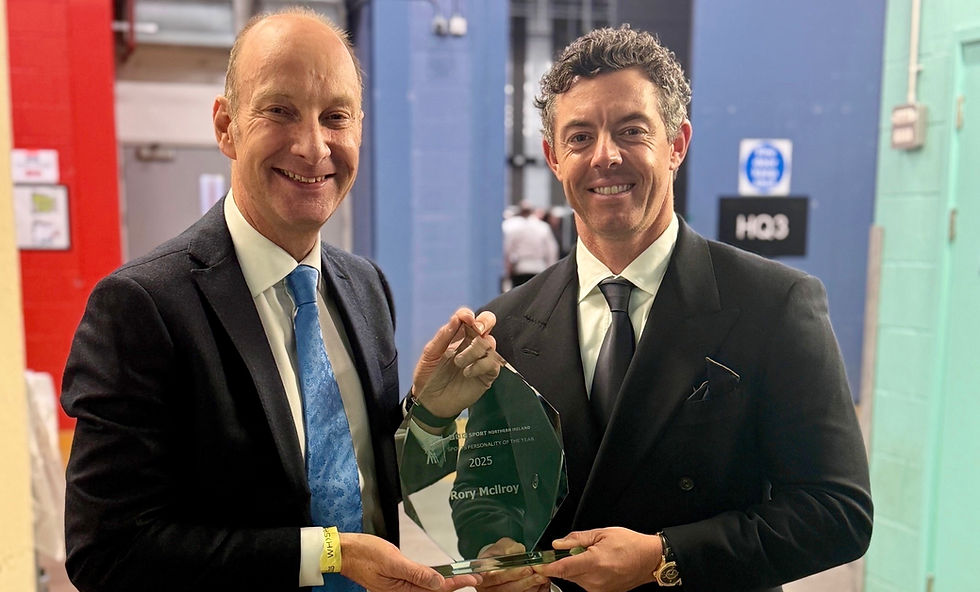TV | Survivor of coercive control by member of An Garda Síochána breaks her silence
- Love Ballymena

- Dec 11, 2023
- 2 min read

In a landmark case that unfolded in July 2022, a member of An Garda Síochána was convicted of the offence of coercive control. This conviction marked a significant moment in the pursuit of justice for survivors of coercive control and domestic abuse.
Now, a courageous survivor of his abuse, Nicola, has decided to share her harrowing story in a new RTÉ documentary. Taking Back Control directed by Trevor Birney, and produced by Fine Point Films (Quinn Country) for RTÉ, airs tonight on Monday, December 11th at 9:35pm on RTÉ One and RTÉ Player.
Nicola, along with members of her family and friends will be live on Upfront with Katie Hannon directly after the documentary to discuss what needs to change to protect women and men who are experiencing coercive control, they also discuss how to spot early warning signs within a relationship and to offer advice to those currently in an abusive relationship.
Nicola was a key witness in the prosecution's case against her abuser. At the same time, she was living with terminal cancer. She has now chosen to reveal her full identity on screen, to shed light on the pervasive issue of coercive control and domestic abuse within relationships.
Taking Back Control provides an unflinching account of the abuse she endured and the strength it took to reclaim the rest of her life.
"Nobody should be controlled. Nobody should have anybody trying to destroy their life and trying to hurt them. My phone never stopped calling, if I went to work my phone never stopped calling. If I went in to visit my sister, he was practically on the phone for the whole time I was visiting my sister. A couple of times he said to me I don't want to spend one day without you, I didn't obviously think he meant it, but he actually really meant it. I thought how can I not enjoy this, I craved hugs, I craved all the intimacy, to feel that love, it felt great, it felt amazing. Where I didn't realise, at that stage, that it was wrong."
Nicola’s decision to relinquish her anonymity was made to help break the cycle of silence that often shrouds victims of domestic abuse and coercive control. By sharing her story, she hopes to empower others to seek help and support, emphasising that no one should endure such abuse in silence.
Taking Back Control aims to encourage conversations about what coercive control actually looks like, how it differs from other forms of abuse, what victims can do to escape it, and how cases are prosecuted since changes to the Domestic Violence Act were enforced in 2019
It also raises questions about how abusers can be allowed to weaponize positions of power and trust, to tighten their grip on victims and convince them that they are helpless or will not be believed if they seek help. By telling her story Nicola also hopes to shed light on the early signs of unhealthy and potentially unsafe relationships, and to empower victims and their families and friends to recognise these signs and act before it's too late.
Support is available at:
NORTHERN IRELAND:
24 Hour Domestic and Sexual Abuse Helpline - 0808 802 1414
Women’s Aid
Men’s Advisory Project
ASSIST NI
The Rowan Centre - 0800 389 4424.
IRELAND:
Woman's Aid - 1800 341 900
Men's Aid - 01 554 3811
Safe Ireland - www.safeireland.ie








